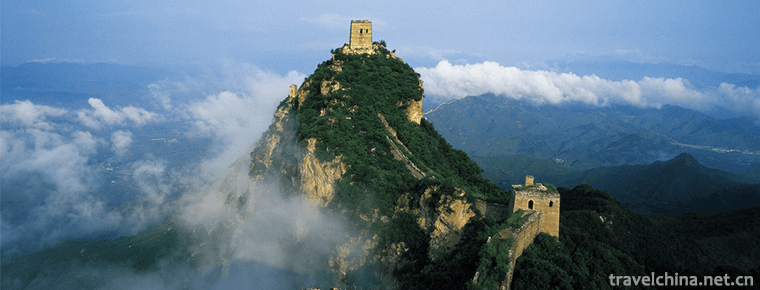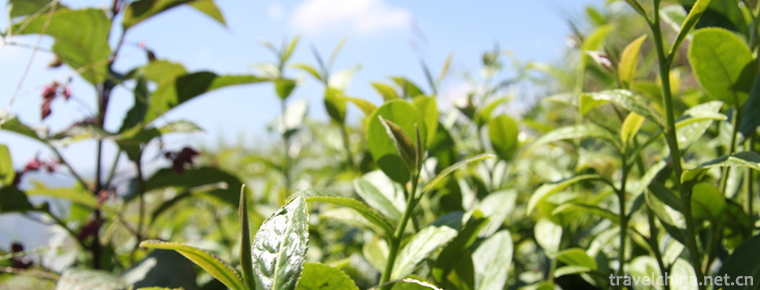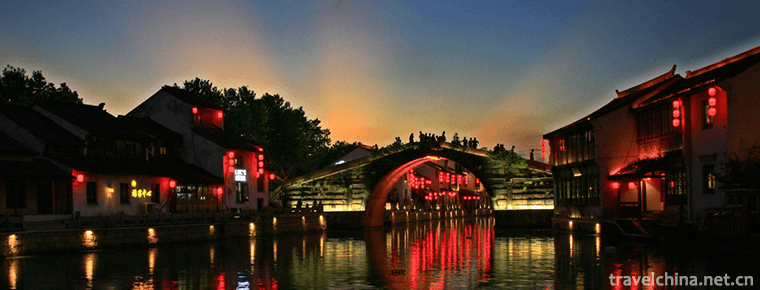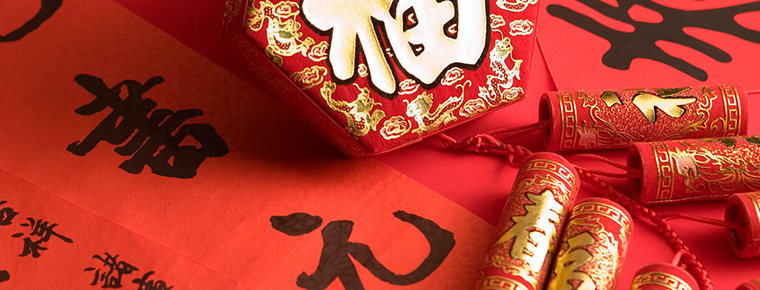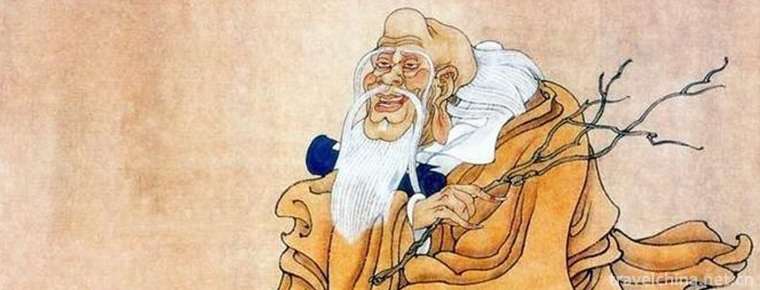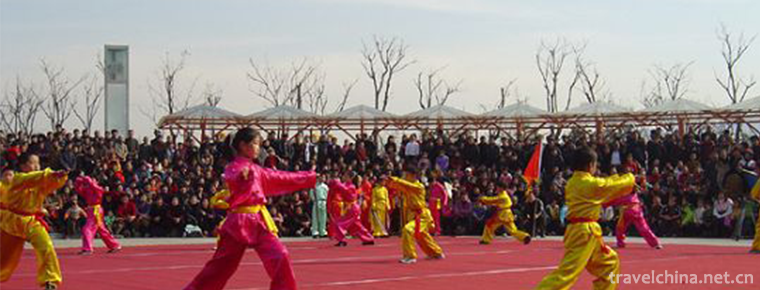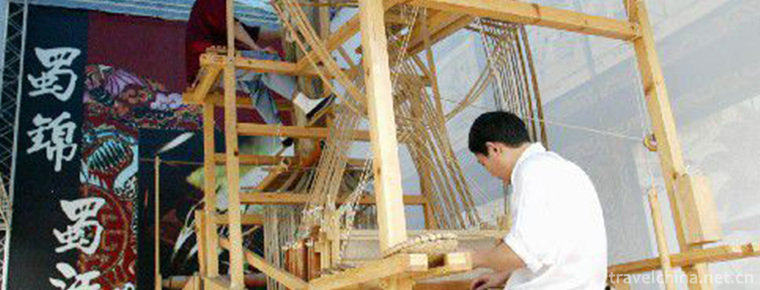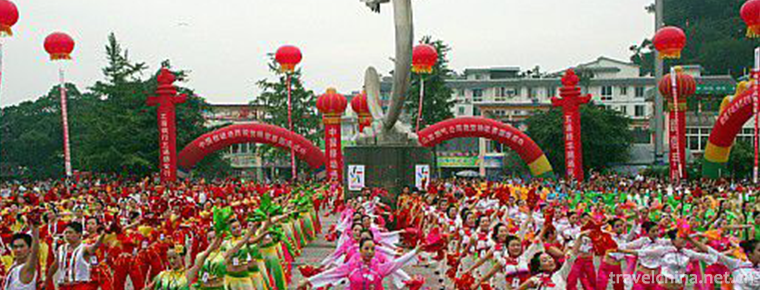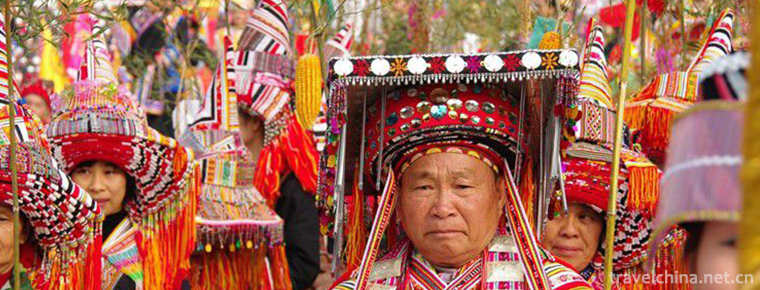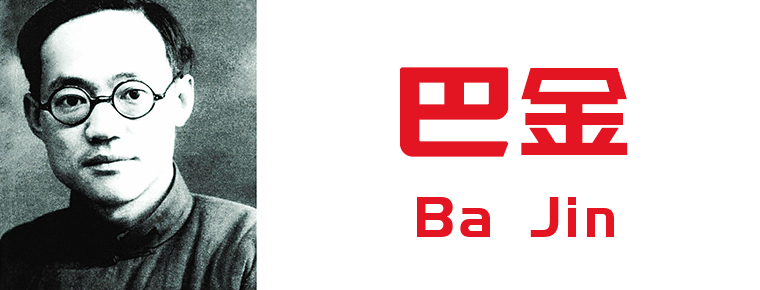Wuyin Opera
Wuyin Opera
Wuyin Opera, a local traditional drama in Jinan, Zibo and surrounding areas in central Shandong Province, is one of the national intangible cultural heritage.
Wuyin opera has a history of nearly 300 years. Its singing style is graceful and charming. It is known as "Northern Yue Opera". Its occurrence, development and finalization have gone through four periods: Yangko Opera, Zhou Guzi Opera, Zashe Opera and Wuyin Opera. It has strong local characteristics, simple and natural dialect, strong entertainment and easy to arouse audience resonance.
On May 20, 2006, Wuyin Opera was approved by the State Council of the People's Republic of China to be included in the first batch of national intangible cultural heritage list, the heritage number: IV-66.
historical origin
The development of Wuyin Opera has gone through four periods: Yangko Opera, Zhou Guzi Opera, Zaju Opera and Wuyin Opera.
Yangko tune is the combination of Yangko, Huagu Yangko and Zhangqiu Licheng folk songs in Shandong Province. The accompaniment only uses gongs and drums. Once the role is lifelong, it gradually increases. Some people fill in lyrics or create stories for them to make Yangko tune richer and more attractive in content and form.
"Zhou Guzi" is also known as "elbow drum", "elbow drum" is a vocal system. It is named for the beat rhythm of elbow cantilever drum when singing. It is the general name of local operas in Shandong and Northern Jiangsu. Wuyin Opera and Maoqiang Opera, Liuqin Opera, Liuqin Opera and other Shandong local operas belong to the elbow drum series. Yangge Opera belonged to the "elbow drum" at the earliest stage. Later, due to the addition of "Zhou Guzi", both the tune and the performance style have undergone tremendous changes.
"Guzi" is the local dialect of the nun's address, "Zhou Guzi opera" is from then on. During the reign of Guangxu in the Qing Dynasty, Zhao Baozi (Zhao Guoqing), an artist from Qingye Village, learned and reformed the "Zhou Guzi Opera", and Jin Chengzhang and Jin Chenghua brothers from the same village worshipped him as teachers. Later, Jin's brothers named the play "Zhou Guzi Opera".
In the early years of the Republic of China, Zhou Guzi's opera was well-known in Zhangqiu and its surrounding areas. In the 1920s, Jin Brothers led the theatre troupe to perform in Jinan Grand View Garden, causing a sensation. Deng Hongshan, the owner of Bangzi Opera Troupe, liked Zhou Guzi's Opera and merged with Jin's Opera Troupe. The Baijin Brothers were the teachers and later the famous actor "Fresh Cherry". At this time, Zhou Guzi's opera formed a relatively independent and complete system of banqiang, and drew lessons from Beijing Opera, Kunqiang Opera, Bangzi Opera and other types of accompaniment clothing, props, make-up, formed a professional performance club class, and its influence continued to expand.
In October 1935, after the introduction of Ma Yanxiang, former professor of Qilu University and Director of Culture Department of the Ministry of Culture after the founding of the People's Republic of China, Deng Hongshan led a "five-person class" consisting of two "martial arts" and two actors to record at Shanghai Baidai Record Company, and finally determined the name of the opera as "five-tone opera", which has been used up to now.
Cultural characteristics
Libretto
The lyrics of Wuyinxi have the characteristics of folk oral literature. They use many dialects, allegorical sayings and inverted sentences. Their language style is cordial, vivid and vivid. They have distinct local characteristics and strong flavor of life. The dialects often used in lyrics have strong local cultural characteristics. For example: noon (morning), noon (lunch), busy needle and thread (busy doing), picking up the uneasy (making people feel uneasy, unreliable), cross-legged to stretch a long talk (crossing the legs) and so on.
Music for voices in a Chinese Opera
Ban-style five-tone opera originates from folk songs. It is usually composed of two sentences: the first sentence and the second sentence. The singing style is dominated by Ban-tone opera, and part of the music of Qupai is inserted in it. Five-tone opera mainly has four basic board forms: yo-ban, Er-Shou, chicken paw and loose board. Various board forms have been changed from these basic cavity patterns, forming the characteristics of this opera.
Musical Instruments
In the early stage of Wuyinxi, percussion accompaniment was used only, mainly composed of drums, boards, gongs, small gongs, small money and other instruments. Only a simple set of gongs and drums Scriptures was used, which was monotonous in form and weak in expression. Performances sometimes require actors to play concurrently or one person to play different instruments. He can perform on stage and play gongs on the next stage. He is both an actor and an accompanist. He has the dual identity of an actor and an accompanist. Can not adapt to complex large-scale repertoire. Later, Wuyinxi gradually entered the stage of string accompaniment and impromptu orchestral accompaniment. Erhu, Yueqin, violin, Banhu, Zhonghu, Sanxian, Pipa, flute, Suona and Gaohu were added successively.
Foot color
The performance of Wuyin Opera is mainly composed of two (Xiaodan, Xiaosheng) Opera and three (Xiaodan, Xiaosheng, Joker) Opera. There is no literary accompaniment, which reflects the folk life. After the development of Wuyin Opera, literary accompaniment has been added, and the repertoire is more abundant.
Representational repertoire
The traditional repertoires of Wuyin Opera mainly include Wang Xiao-er Hurrying, Wang Er-jie Sifu, Abductor, Cailou Ji, Wang Dingbao Yongdang, Wall Tou Ji, Zhao Mei-rong Guan Deng, Wang Lin Xie's Wife, Village Mother, Wang Po Shuo-mei, Zhang Sijie Luofan, Songlin Club, Parent's Head-in-law, An Zhimi and so on.
Inheritance and Protection
Inheritance value
Five-tone opera has a melodious and charming singing voice. Its repertoire is mostly based on family ethics and local women's living conditions. It has strong local characteristics, simple and natural dialect, strong entertainment and easy to arouse audience resonance. It has important artistic, cultural and economic values.
As a representative of excellent dungeon culture, Wuyin opera reflects the content of opera culture, which can promote people's physical and mental health, lead the social orientation of mass life. Through opera, people can get a kind of spiritual edification and embody the optimistic national spirit. Through the portrayal of characters in the opera, people's spirit can be sublimated, and people can enjoy themselves in the process of entertainment. There is a kind of lesson from which we can get a kind of inspiration. Therefore, Wuyin opera can promote people's physical and mental pleasure and health within a certain region, which has positive significance and important value.
Five-tone opera inherits a traditional culture, plays a social function, and moistens people's spiritual world in a special way of teaching and enjoying. At the same time, culture is changing and influencing people, enabling people to constantly improve themselves, adjust themselves, and achieve greater development.
Through the performance and dissemination of Wuyin Opera, this cultural form has become an important source of national cohesion and creativity. So that the broad audience and appreciation groups can stimulate people's creativity through this cultural form, make people's lives more colorful and show a positive spiritual outlook.
Current situation of inheritance
In recent years, the dramatic changes in society, economy and culture have brought tremendous impact and impact on Wuyinju. In addition, the protection measures are lagging behind and the funds are insufficient. This kind of drama is facing the danger of losing its transmission.
Zibo Wuyin Theatre is facing the problems of fund and performance market, and the small scale, low level and uneven personnel of the scattered non-governmental organizations, mostly performing traditional plays, with little innovation and development. Because of the bad situation and serious brain drain, the cast is facing a break, and creative talent is even scarcer. The creative team is relatively weak, and the artistic research of Wuyin Opera is seriously lagging behind.
Heritage figures
Huo Junping, female, Han nationality, born in Zibo, Shandong Province in 1947. The second batch of national intangible cultural heritage project representative successors, Zibo City, Shandong Province, declared. Declaration items: Wuyin Opera.
Lu Fengqin, the representative successor of the fifth batch of national intangible cultural heritage projects, declared in Zibo City, Shandong Province. Declaration items: Wuyin Opera.
protective measures
Since Wuyin Opera was listed as the first batch of intangible cultural heritage by the state in 2006, Zibo Wuyin Opera Theatre has carried out some work with the purpose of "protection first, rescue first, rational utilization, inheritance and development". Huo Junping, the national successor of Wuyin Opera, has participated in the exhibition activities of representative successors in Beijing, actively participated in the compilation of the textbook "Entering Wuyin Opera" on campus, and vigorously trained young actors. Lu Fengqin, the representative inheritor of Wuyinxi, a intangible cultural heritage in Shandong Province, has participated in many large-scale evening performances and "non-legacy" campus activities to enhance the understanding and attention of Wuyinxi from all walks of life.
Five-tone Drama Academy and the school jointly launched the "Five-tone Drama Into Campus" activity, taking "Entering Five-tone Drama" as a local school-based curriculum, so that students can feel the artistic charm of ancient dramas and accept the influence of traditional culture.
On December 14, 2017, the opening ceremony of Fresh Cherry Memorial, Shandong's first modern and contemporary opera celebrity thematic Memorial hall, was held in Zibo Wuyin Theatre. The Fresh Cherry Memorial is an important carrier and practice base for the inheritance, protection and development of Wuyin Opera art, which integrates collection, display, education and research functions.
social influence
Honorary recognition
In 1998, the repertoire rehearsed by Zibo Wuyin Theatre: Modern drama La Bajie won the first prize in the opera category of the 8th "Chinese Population Culture" Award, the "Five-One Project" Award of the Ministry of Propaganda and the "Wenhua New Drama" Award of the Ministry of Culture.
In 1986, Huo Junping of Zibo Wuyin Theatre won the Best Actor Award of the Third Drama Performance Month in Shandong Province, and the Plum Blossom Award of the Fifth Chinese Drama in 1988.
Important activities
In 1954, Zibo Wuyi Opera Society participated in the East China Opera Concert, performing "Stories of Colorful Buildings" and "Wang Xiaojie". Deng Hongshan won the first prize for actors and Ming Hongjun won the second prize for actors.
In 1960, Zibo Wuyin Opera Troupe came to Beijing to report and perform such dramas as "Wang Xiaojie", "Abductor", "Village Mother", "Wang Erjie Sifu" and "Rouge" adapted. Later, he adapted and performed "Liaozhai Opera", "Two Sons for Father", "Sisters Easy Marriage", "Chivalrous Women", "Bean Flowers Fragrant", "Shijiuquan" and so on.
In 1985 and 1987, the Wuyin Opera Troupe went to Beijing twice to report and perform.

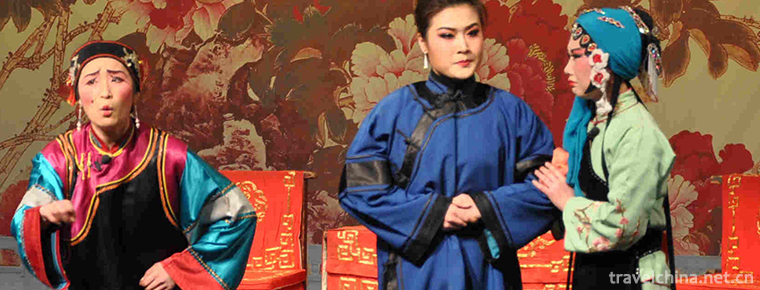
-
The Simatai Great Wall
Simatai Great Wall is located in the north of Simatai Village, Gubeikou Town, northern Miyun District, Beijing. It is adjacent to Gubeishui Town. The wall of Simatai Great Wall is built on the steep m.
Views: 148 Time 2018-12-10 -
Anxi Tea Grand View Garden
Anxi Tea Grand View Garden in Quanzhou, Fujian Province is located in Fengguan Mountain on the north side of Fengcheng City. It covers an area of 11 mu.
Views: 116 Time 2019-01-02 -
Qingming Bridge Ancient Canal Scenic Area
Qingming Bridge Ancient Canal Scenic Area is located at the southern end of Wuxi city center, covering about 44 hectares of scenic area. The scenic spot is composed.
Views: 161 Time 2019-02-07 -
Spring Festival
The Spring Festival, the Lunar New Year, is the first year of the year and also the traditional "New Year's Day". Commonly known as New Year, Spring Festival has a long history.
Views: 178 Time 2019-04-22 -
Laozi legend
Laozi is the incarnation of Laojun. The fifteenth day of February in the lunar calendar is a major Daoist festival. It is the "Christmas" of the emperor. Lao Tzu, the word Boyang.
Views: 204 Time 2019-05-11 -
Meishan Wushu
Meishan Wushu is a traditional school of Wushu which is spread in Hunan Province. Xinhua is an ancient and magical land. It has not only nurtured many historical celebrities, but also cultivated Meish.
Views: 111 Time 2019-06-03 -
Shu Brocade Weaving Techniques
Shu brocade weaving has a long history. The earliest written records were found in the reign of Huiwen King in the Spring and Autumn Period and Qin Dynasty. During the Warring States Period, Shu Broca.
Views: 111 Time 2019-06-15 -
Yangge Dance
Yangge is a popular and representative folk dance genre in China (mainly in the northern region). There are different appellations and styles in different regions. In folk, there are two kinds of appe.
Views: 900 Time 2019-07-10 -
Panwang Festival of Yao Nationality
Panwang Festival is an important festival to worship ancestors Pangu, Pangeng and Panhu. People at home and abroad attach great importance to this national sacrifice ceremony. Launched by the Pan fami.
Views: 145 Time 2019-07-11 -
New brown leaf weaving
Xinfang Brown edition is one of the traditional handicraft products in China. It has entered the third batch of national intangible cultural heritage list recommendation project list. It originated in.
Views: 472 Time 2019-08-16 -
Ba Jin
Ba Jin (November 25, 1904 - October 17, 2005), male, Han nationality , Sichuan Chengdu Man, his ancestral home Zhejiang Jiaxing 。 Ba Jin's original name Li Yao Tang And another pen name, Pei pole, bli.
Views: 269 Time 2019-09-06 -
Sports in Yibin
In 2019, Yibin sports team (member) won 4 world-class gold medals, 15 national gold medals, 30 provincial gold medals, 38 silver medals and 41 bronze medals. The annual sales of sports lottery tickets reached 410 million yuan, and 15 million yuan of public w.
Views: 329 Time 2020-12-18
